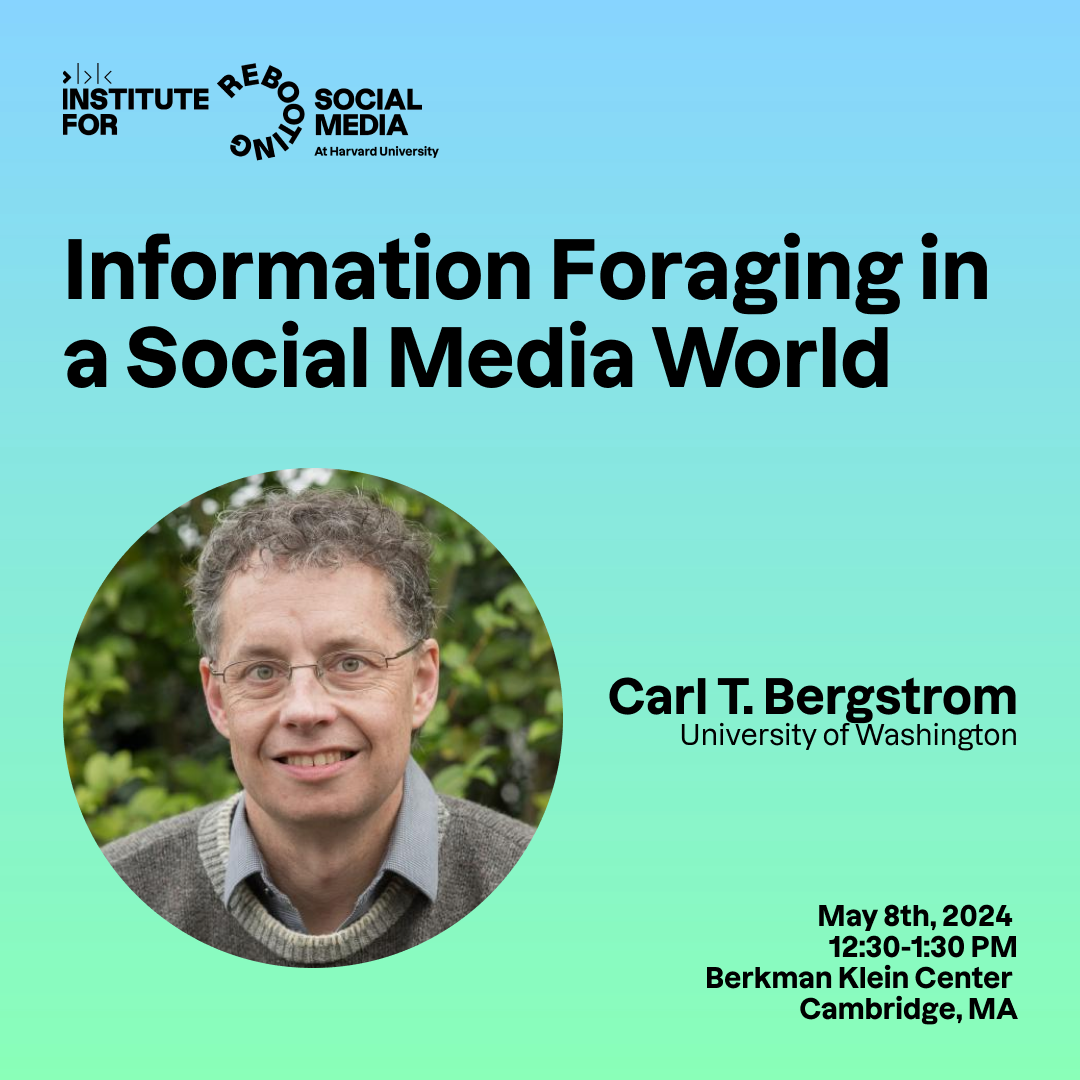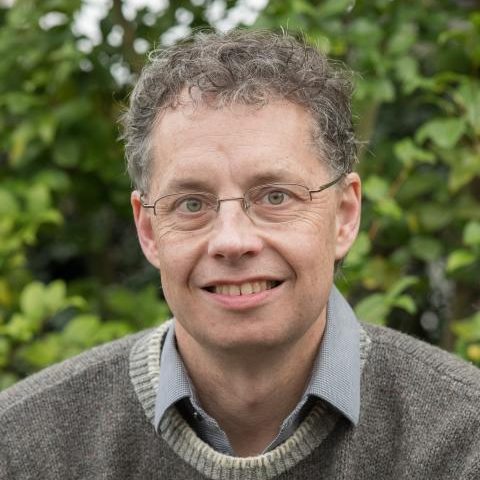This event has been canceled until further notice. Please check back for updates on this event and other Speaker Series installments in the future.
RSM welcomes Carl T. Bergstrom for a talk exploring social media’s impact on the scale of human communication and our mechanisms for creating collective understanding.
We are a species of information foragers. Individually and collectively, we have evolved to scour our natural and social environments for useful information. Over the past twenty years, society has fashioned the web into an information pipeline to satisfy and profit from our evolved desires for novel information and social connection. What happens when the scale of human communication is radically transformed in the span of the generation, and our mechanisms for creating collective understanding are upended? What happens when this entire process is not stewarded to promote the spread of accurate information, strengthen democracy, and advance human well-being—but rather is engineered by machine learning algorithms to get people to click on advertisements? What happens when large language models such as ChatGPT enter this global conversation with massive volumes of customized text indistinguishable from that produced by humans?
In this talk, Carl will look at what social media and information technology more generally are doing to society, consider how we ended up here, and explore some possible suggestions for what we can do about it.
Carl T. Bergstrom is a Professor of Biology at the University of Washington. Though trained in evolutionary biology and mathematical population genetics, Carl is best known for working across disciplines and integrating ideas across the span of the natural and social sciences. The unifying theme running throughout his work is the concept of information. Within biology, he studies how communication evolves and how the process of evolution encodes information in genomes. In the philosophy and sociology of science, he studies how norms and institutions influence scholars’ research strategies and, in turn, our scientific understanding of the world. Within informatics, he studies how citations and other traces of scholarly activity can be used to better navigate the overwhelming volume of scholarly literature. Most recently, Carl’s work has focused on the spread of disinformation on social networks and what we can do about it.

